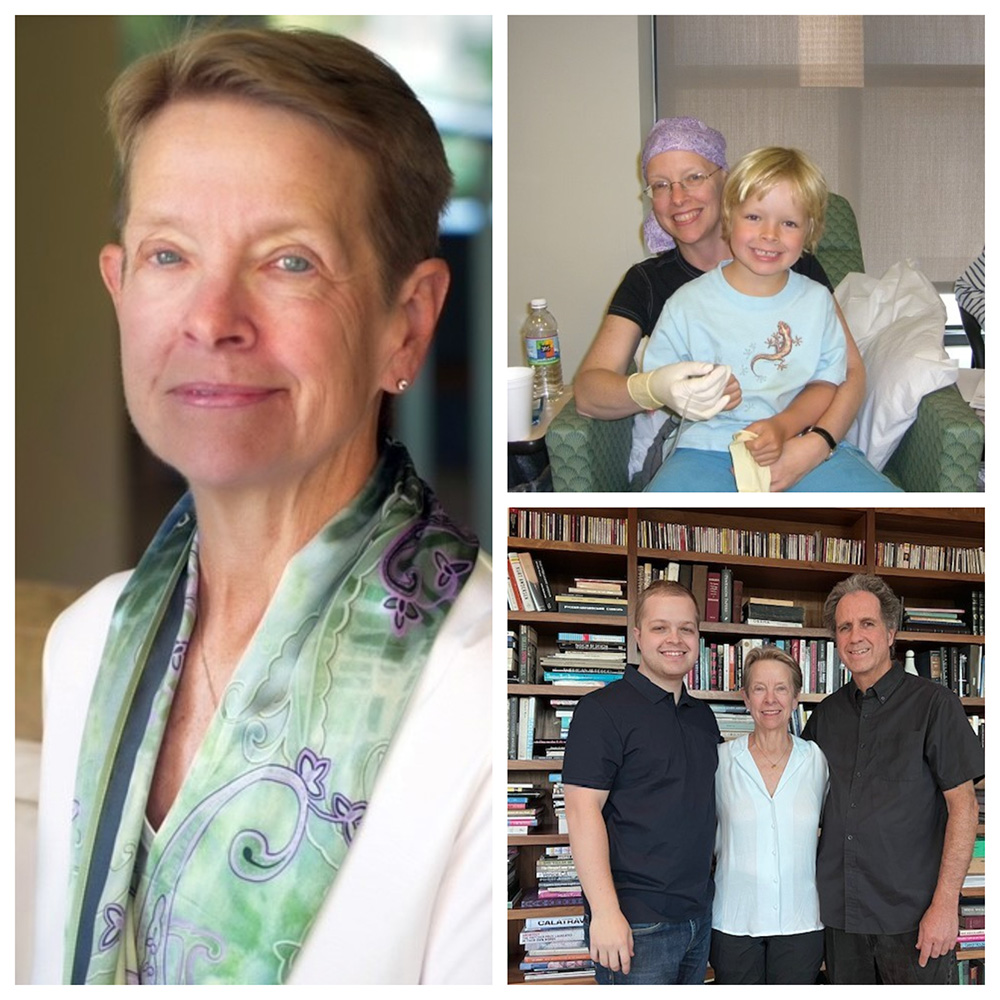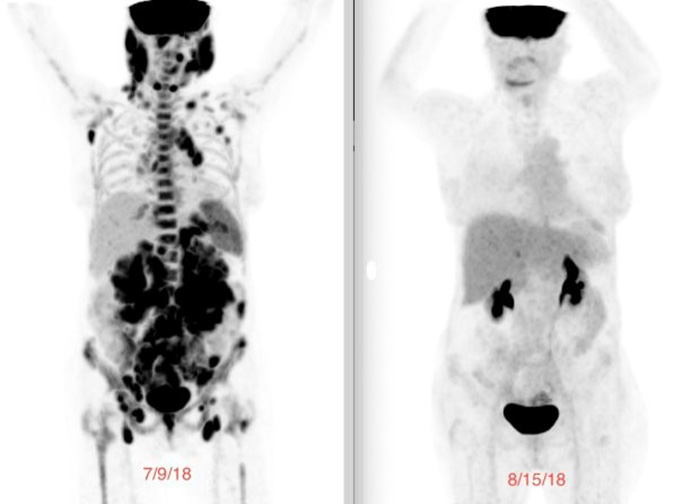
July 16 has more than one significance for cancer survivor Laurie Adami.
July 16, 1994, is the day Laurie Adami met her husband in Venice Beach, California. She vividly remembers the bar where they met, the barstools they sat on, and why they were both there separately.
July 16, 2018, is also important in Laurie’s life. While it isn’t the beginning of a love story, it is just as happy – since it is the day Laurie’s life was saved.
This is the date when Laurie received a revolutionary new cancer treatment called CAR T-cell therapy.
CAR T-cell therapy is a cell and gene therapy that genetically engineers a patient’s own immune cells to more effectively find and destroy cancer.
Laurie had been battling cancer for 12 years, and where other cancer treatments had failed to put her lymphoma into remission, CAR T-cell therapy was successful.
Laurie is still in remission today, enjoying the sixth anniversary of receiving her lifesaving treatment – and the 30th anniversary of meeting her husband.
July 16, 1994: How Laurie met her husband.
Laurie met her husband in a bar in Venice Beach. She was hosting a visiting friend from New York City when they went to Hal’s Bar and Grill.
“When we walked in, there was one open barstool and I took it,” Laurie said.
Her future husband was sitting on the barstool next to her, eating dinner after work. Little did they know at the time they would get married and have a child together.
Their lives together turned upside-down in 2006 when Laurie was diagnosed with incurable follicular lymphoma, a type of non-Hodgkin lymphoma that can be difficult to treat, which was the case for Laurie. She went through six cycles of treatment spanning 12 years, but none put her cancer into complete remission.
“It was so discouraging,” Laurie said. You experience a variety of side effects and having a young child to explain what is going on to was an added challenge.”
Despite the constant setbacks, Laurie never considered stopping treatment. She persisted for the sake of her family.
““I couldn’t imagine my poor husband having to tell my child, ‘Mommy died.'”” — Laurie Adami, follicular lymphoma survivor
Laurie kept fighting her cancer in hopes of a more advanced treatment option. Then came the emergence of CAR T-cell therapy.
“That was my lifeline,” she said.
July 16, 2018: Laurie’s CAR T-cell anniversary.
The process of receiving CAR T-cell therapy began a few weeks before July 16, 2018. After trying six other types of therapy over the previous 12 years, Laurie’s oncologist Dr. Sven de Vos at University of California, Los Angeles (UCLA) called to tell her of a new CAR T-cell therapy clinical trial.
Laurie heard about CAR T-cell therapy six years earlier from watching a video about Emily Whitehead, the first child ever to receive this type of cancer cell and gene therapy. Emily received her CAR T cells in 2012 and has been in remission from her acute lymphoblastic leukemia ever since.
Emily’s story inspired Laurie, who felt drawn to this emerging science.
“The fact it was going to use my own cells gave me a whole different and more hopeful view of this therapy,” she said.

After being admitted in the clinical trial, Laurie went to UCLA in mid-June to have her T cells (a type of immune system cell) harvested.
The medical team removed approximately one million of her T cells, and after the engineering of her cells, there were more than a billion genetically modified cells by July 16 for her CAR T-cell infusion.
“I remember that night feeling a tingling sensation in my lymph nodes,” Laurie said. “I wasn’t sure if it was my brain playing tricks on me or if it was the cells actually working.”
Laurie’s CAR T cells were effective. By Day 30, her scans showed no signs of cancer anywhere.
“My oncologist came in with the scan results and said, ‘Laurie, there’s no evidence of disease,’” Laurie recalled. “I took the report, I crumbled it up, and I threw it across the room.
“I called it nonsense. After so many bad scans over the years, I just didn’t believe it.”
Over time, she started to believe she was truly in remission. Now, her doctor calls her “cured,” and she can celebrate her CAR T-cell anniversary every year as the date when this extraordinary science started saving her life.
“As a patient who recognizes that without this science I wouldn’t be here,” she said, “I am extremely grateful.”



